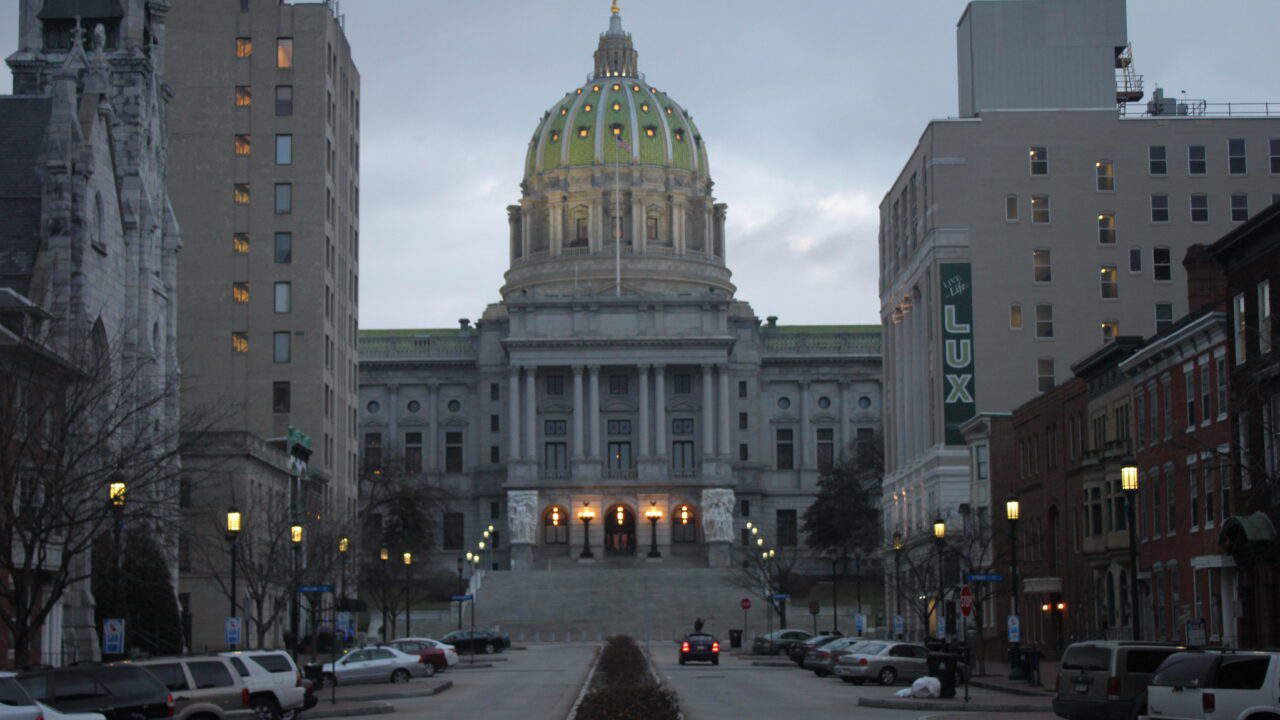 Pennsylvania State Capitol by Joseph is licensed under Attribution-NonCommercial-ShareAlike (CC BY-NC-SA 2.0)
Pennsylvania State Capitol by Joseph is licensed under Attribution-NonCommercial-ShareAlike (CC BY-NC-SA 2.0)
In Pennsylvania’s House of Representatives, Democrats have introduced House Bill 1773, a bill aiming to quadruple taxes on small businesses. If enacted into law, HB 1773, also known as “Fair Share Tax Plan,” would increase the tax rate on passive incomes from 3.07% to 12%. This bill has been authored by Representative Christopher Rabb (D- Philadelphia), and is being co-sponsored by three other Democratic representatives.
HB 1773 would affect almost 180,000 small businesses, and these tax rate changes would also be levied on S-corporations, partnerships, and sole proprietors. According to the Kauffman Foundation, Pennsylvania already ranks last in the nation for bringing in new entrepreneurs, thus highlighting the state’s non-competitive business environment. The enactment of this bill would only expand on this non-competitiveness, which is detrimental given that the state is facing steady out-flow migration of both residents and businesses.
The proposals behind HB 1773 contradict the needs of the state, and opponents to this bill have made that fact abundantly clear. The Director of Public Affairs for the Pennsylvania Chamber of Business and Industry, Michael Plummer, said that “[HB 1773] would destroy small businesses across the Commonwealth.” Plummer continued on to note that these businesses are still struggling with inflation, workforce shortages, and supply chain issues. Instead of sucking these businesses dry of their hard-earned revenues, Pennsylvania lawmakers should be looking to implement policies that create a more competitive business landscape and support business growth.
HB 1773 seems to prematurely implement tax hikes given that these tax increases are not necessarily on Governor Shapiro’s (D) agenda for this year. However, given Shapiro’s recent budget proposal for Fiscal Year 2025, spending in Pennsylvania is reaching alarming levels and the balance will need to be offset somehow. The Governor is proposing a state budget of $48.3 billion, which will put the state on an unsustainable path for future fiscal stability. As his proposal stands now, the state would spend $3.4 billion more than what is expected to be collected in revenues. Thus, the response from Democrats is to raise taxes, beginning with small businesses.
Critics of HB 1773 have rightfully called out the bill as “tragically shortsighted.” This bill does nothing but undermine both efforts to incentivize new businesses from moving into the state and efforts to keep existing businesses from leaving. It does not serve as a legitimate solution to the irresponsible spending proposals laid out by the Governor either.
HB 1773 would hinder economic vitality and would serve as a dangerous precedent for future policies meant to “offset” monstrous government spending.

